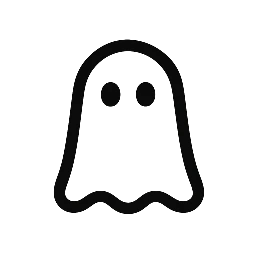The influence of the supernatural on human life and culture is pervasive, profound, and woven into the very fabric of human experience, serving essential psychological and sociological functions across diverse societies. At its most fundamental level, belief in the supernatural provides a powerful and often comforting framework for explaining the unexplainable, offering meaning in the face of life’s greatest mysteries, such as death, illness, and human origins. When empirical explanations fall short, the supernatural steps in to fill the “God of the gaps,” attributing bewildering or chaotic events to the will, actions, or intervention of non-physical entities like gods, spirits, demons, or ancestors. This cognitive function helps to reduce the anxiety of uncertainty and provides individuals with an intellectual structure to make sense of a world that can often appear random and unpredictable, which in turn offers a sense of illusory control over uncontrollable circumstances.
The Core of Belief
The fundamental influence of the supernatural on human life is its function as the “God of the Gaps.”
When scientific or empirical knowledge fails to explain the great mysteries of life—such as death, illness, or chaos—supernatural belief steps in to fill that void. This essential cognitive tool provides psychological order and a critical sense of illusory control, allowing humans to function by offering immediate, powerful explanations for an otherwise random and terrifying world.
From a social perspective, the supernatural is a primary architect of culture, deeply shaping moral frameworks, communal values, and behavioral norms. Supernatural beings are often perceived as enforcers of societal ethics, providing a cosmic justice system where good is rewarded and transgressions are punished, either in this life or an afterlife. This belief system serves to regulate interpersonal relationships and fosters social cohesion, as shared belief in a common supreme entity or set of principles creates a powerful sense of in-group identity and encourages cooperation and altruistic behavior among members. Rituals and ceremonies, which are central to almost all belief systems, are practices centered around invoking or interacting with supernatural beings to seek blessings, guidance, or protection. These shared collective experiences reaffirm cultural identities, strengthen community bonds, and transmit core values from one generation to the next, thereby ensuring the continuity of the culture.


The psychological impact of the supernatural is multifaceted, playing a crucial role in managing existential dread, particularly the fear of mortality. Belief in an afterlife or the continuation of the soul beyond physical death offers an ultimate palliative mechanism, providing hope and diminishing the terror of bodily annihilation. In times of extreme stress, trauma, or collective uncertainty, supernatural beliefs can act as a psychological defense, providing a sense of comfort and meaning. For example, the belief in a guardian angel or destiny can help an individual cope by attributing control to external, benevolent forces, even if this reliance sometimes promotes avoidance of more adaptive, goal-directed behaviors. The capacity for supernatural thinking itself is thought by some evolutionary psychologists to be a byproduct of the innate human ability to reason about the minds of others, leading to the attribution of consciousness and intention to non-human or non-physical agents.
Furthermore, the presence of the supernatural is deeply embedded in the creative and narrative arts, influencing the myths, legends, and folklore that inform a society’s self-perception and history. Stories of supernatural beings and their exploits encapsulate a culture’s aspirations, fears, and wisdom, providing moral templates and explanations for natural phenomena. In the modern context, this fascination continues, with popular culture being heavily dominated by themes of ghosts, aliens, magic, and the paranormal, which serve both as entertainment and as a continued psychological grappling with questions that transcend ordinary reality. Whether as a formalized religion that dictates daily life, a superstition that guides personal choices, or a narrative that colors the collective imagination, the supernatural remains an indispensable component of the human condition, shaping our interior psychological lives and the broad architecture of our social world.
Key Insights
Ultimately, reflecting on the pervasive influence of the supernatural reveals that its role is far less about metaphysical proof and far more about human utility. The great takeaway is that supernatural belief, across all cultures, serves as a crucial piece of psychological and social infrastructure, providing the foundational structure necessary for human groups to manage existential terror and maintain cohesion. We must recognize that the core function of the supernatural is to act as the “God of the Gaps,” offering an immediate, comforting explanation for inexplicable tragedies like death and illness where empirical knowledge inevitably fails. The actionable insight here is to view these beliefs not as mere relics of a pre-scientific age, but as enduring, sophisticated mechanisms of coping, belonging, and moral regulation that continue to shape human behavior, from ritual practices to modern media consumption. We are therefore encouraged to reflect not on what we believe, but on why we believe, recognizing that our collective need for meaning and control is the eternal engine that sustains the supernatural in our lives.


Leave a Reply